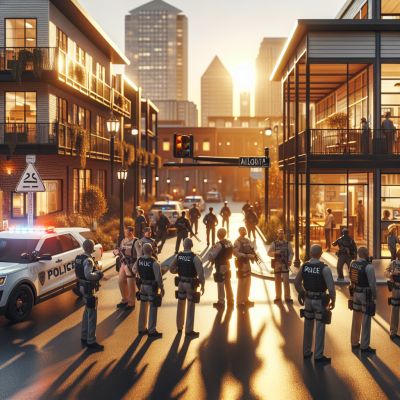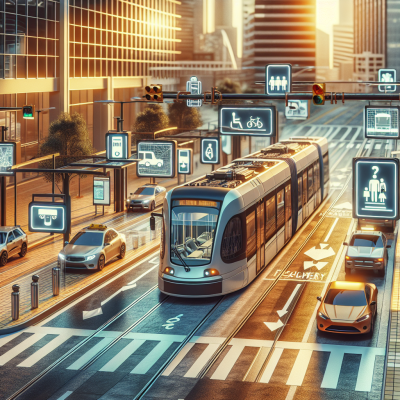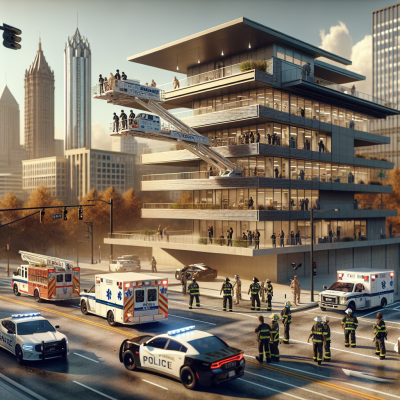
Safeguarding Personal and Digital Security
Personal Safety Tips for Residents and Visitors
Staying safe in Atlanta, whether you're a resident or a visitor, involves a conscious approach to personal security. Here are some essential tips:
-
Stay Aware of Your Surroundings: Always remain vigilant to what's happening around you. Avoid distractions like texting while walking, especially in unfamiliar or crowded areas.
-
Plan Your Routes: Before heading out, plan your route. Use well-lit and populated pathways and avoid isolated or poorly lit areas, especially at night.
-
Trust Your Instincts: If you sense something is wrong or feel uncomfortable at any point, trust your instincts and leave the area or seek assistance if necessary.
-
Secure Your Valuables: Keep personal belongings such as phones, wallets, and keys close to you at all times. Avoid displaying expensive items openly.
-
Use Reliable Transportation: When using public transport or ride-sharing services, ensure that you are using verified and legitimate services. Check driver IDs and license plates before getting into a car.
-
Notify Others of Your Plans: Inform friends or family of your whereabouts and expected arrival times, especially when traveling through unfamiliar locations.
-
Emergency Contacts: Keep a list of emergency contacts handy. This includes local emergency services, friends, and family.
Protecting Personal Information Digitally
In an increasingly digital world, safeguarding personal information online is crucial. Here are ways to protect your digital footprints:
-
Create Strong Passwords: Use complex passwords combining letters, numbers, and symbols. Avoid using easily guessed information like birthdays or names.
-
Enable Two-Factor Authentication: Activate two-factor authentication on all accounts where possible. This provides an added layer of security against unauthorized access.
-
Be Cautious with Public Wi-Fi: Avoid accessing sensitive accounts or conducting financial transactions over public Wi-Fi networks. Use a VPN to encrypt internet connections for added security.
-
Regular Software Updates: Ensure your devices have the latest software updates and security patches to protect against vulnerabilities and malware attacks.
-
Limit Sharing on Social Media: Be careful about the amount and type of personal information shared on social media platforms. Consider adjusting privacy settings to restrict who can view your posts and profiles.
-
Suspicious Emails and Downloads: Do not open emails or download attachments from unknown sources. Beware of phishing scams that attempt to capture personal data.
-
Back-Up Important Data: Regularly back up important data to secure locations such as external drives or cloud storage services to prevent loss in case of data theft or system failures.
Resources for Reporting and Responding to Threats
When experiencing or witnessing public safety threats, knowing how to report and respond is essential:
-
Emergency Services: In urgent situations, dial 911 to request police, fire, or medical assistance immediately.
-
Non-Emergency Police Lines: For non-urgent matters, contact Atlanta's local law enforcement through non-emergency lines for guidance and support.
-
Community Support Centers: Reach out to local community centers or organizations that offer resources and support for various safety concerns, including domestic issues or identity theft.
-
Online Safety Tools: Utilize tools and applications provided by cybersecurity experts that offer real-time scanning and protection against digital threats, such as malware detection programs.
-
Hotlines for Specific Threats: Keep a list of relevant hotlines for specific threats, such as domestic violence helplines, fraud reporting lines, and community safety hotlines.
-
Participation in Safety Workshops: Engage in local workshops and seminars focused on safety training to learn best practices and preventative measures.
-
Stay Informed: Regularly check local news and safety updates to stay informed about potential threats or ongoing safety issues in your area.
By following these guidelines and utilizing available resources, both personal and digital safety can be effectively managed in Atlanta, ensuring a secure experience for everyone in the community.









